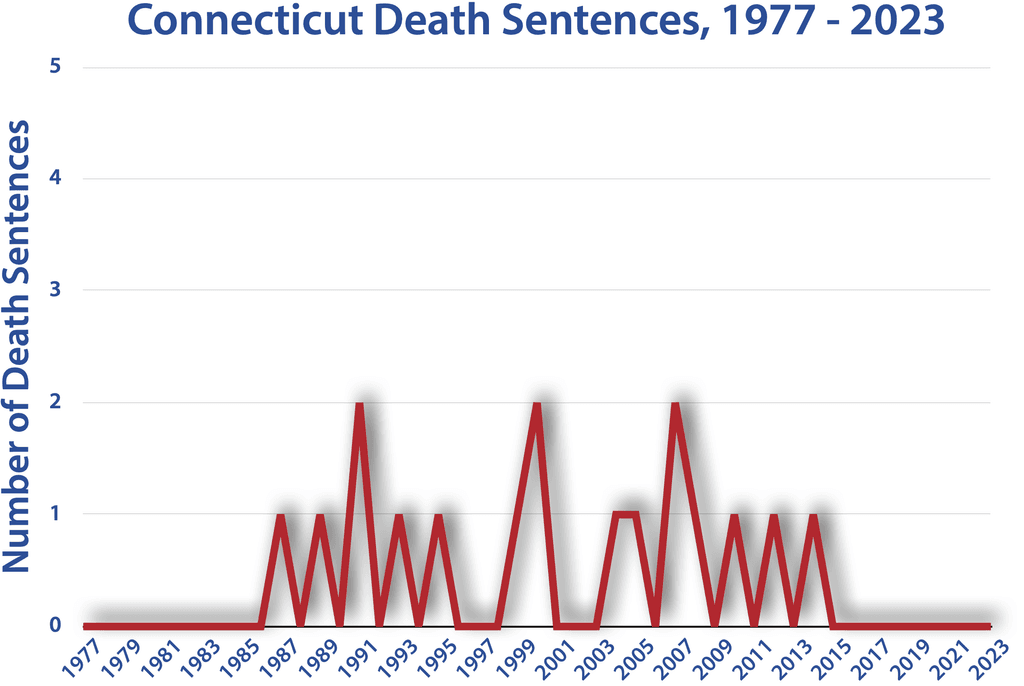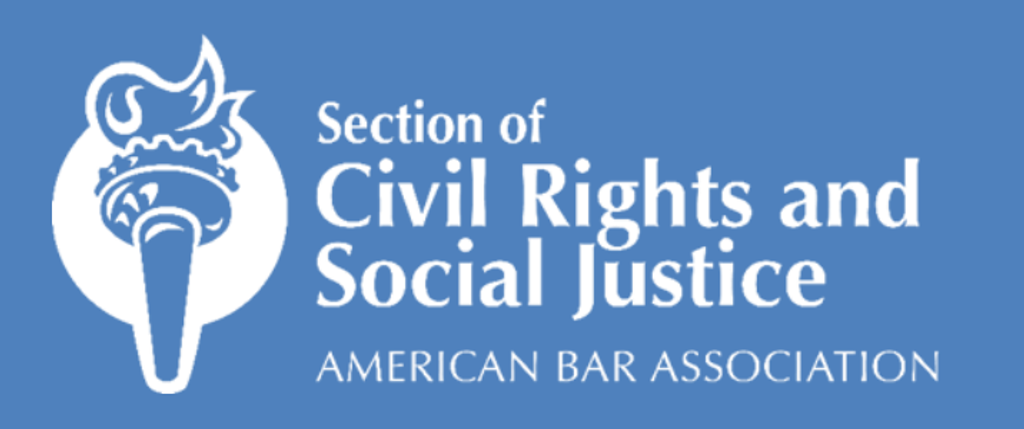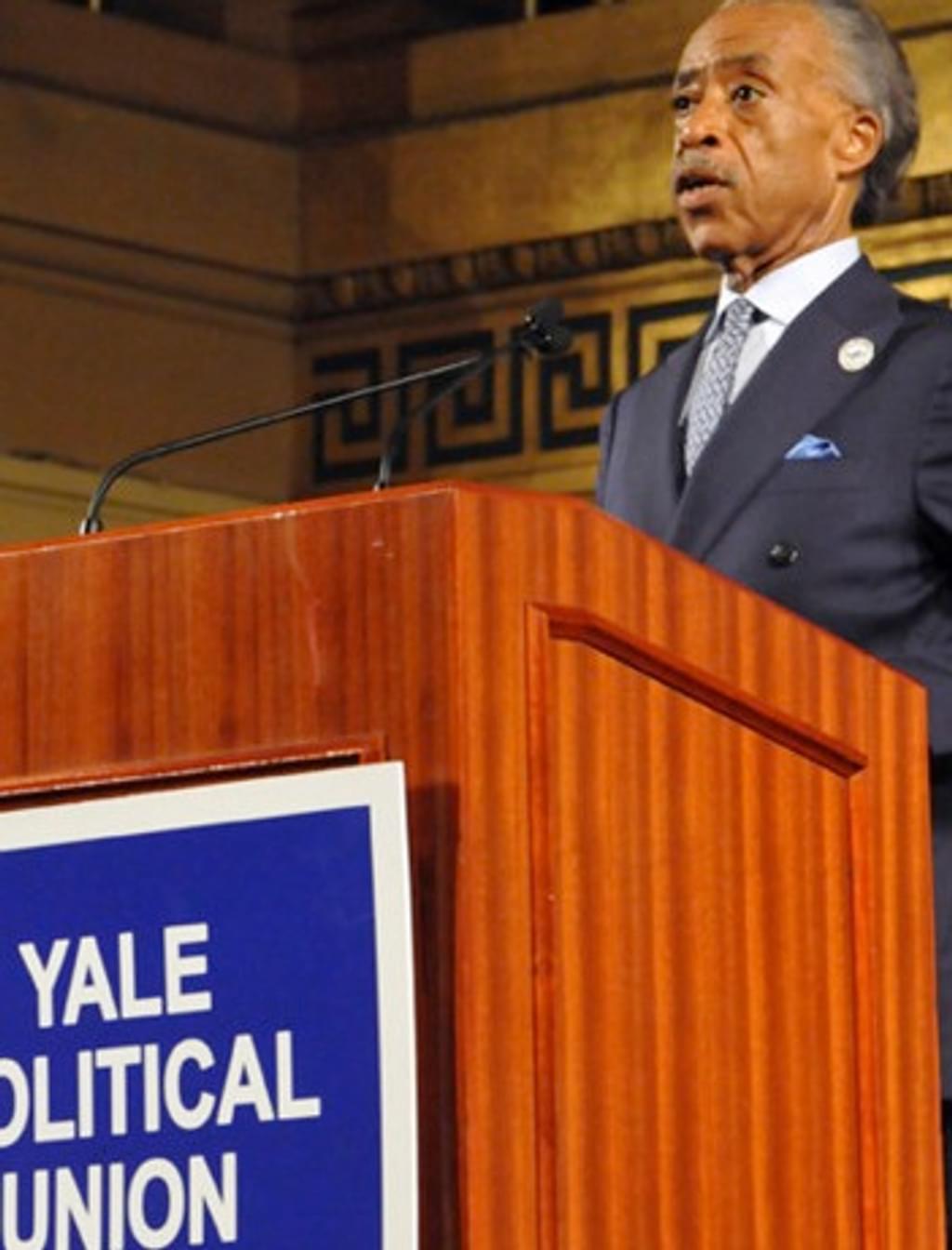
State & Federal
Connecticut

History of the Death Penalty
In colonial Connecticut, capital crimes included idolatry, witchcraft, and blasphemy.
Famous Cases
The first person executed for witchcraft in what is now the United States was Achsah Young, who was executed in Hartford in 1647.
In 1786, Hannah Occuish, a 12-year-old Native American girl, was hanged in New London for the murder of a young white girl. She may have been the youngest person ever executed in the United States.
The last person executed in Connecticut who had exhausted all appeals was Frank Wojulewicz, who was executed in 1959 for murdering a police officer and bystander while committing a robbery. The two men executed since then both dropped appeals and “volunteered” for execution.
Notable Commutations/Clemencies
Connecticut is one of five states that gives clemency authority to a board, rather than the governor. No death row prisoner was granted clemency during the period in which the death penalty had been reinstated.
Milestones in Abolition/Reinstatement
In 2009, the Connecticut legislature passed a bill to abolish the death penalty, but the bill was vetoed by Governor M. Jodi Rell.
In 2012, Connecticut abolished the death penalty for future crimes. Eleven men remained on death row until 2015, when the Connecticut Supreme Court ruled by a vote of 4-3 in State v. Santiago that the death penalty violated the state constitution. The Court indicated at that time that the remaining death row prisoners were entitled to be resentenced to life without parole. However, after one of the justices in the Santiago majority left the Court, prosecutors sought and were granted permission to re-open the issue. On May 26, 2016, in State v. Peeler, the Court reaffirmed its holding in Santiago by a vote of 5-2.
The remaining death-row prisoners were resentenced one at a time, as their cases were decided in the lower courts. On December 6, 2018, Richard Roszkowski became the last of the eleven formerly death-row prisoners to be formally resentenced to life without possibility of release.
Other Interesting Facts
Connecticut carried out only one execution in the modern era of the death penalty. Michael Ross was executed by lethal injection in 2005 after giving up his appeals.


Connecticut Execution Totals Since 1976
News & Developments
News
Aug 01, 2022
Massachusetts Formally Exonerates Last ‘Witch’ Wrongfully Condemned During Salem Hysteria. Will Connecticut Follow Suit?

As Massachusetts formally exonerated the last person condemned for witchcraft in the colony, efforts are under way to clear the names of the 46 people wrongfully charged with witchcraft in neighboring Connecticut during the 17th century Puritan witch hunts.
Read MoreAug 09, 2020
Capital Case Roundup — Death Penalty Court Decisions the Week of August 3, 2020
NEWS (8/6/20) — Connecticut: The Connecticut Supreme Court granted a new trial to former death-row prisoner Lazale Ashby. The court ruled that the prosecution had violated Ashby’s Sixth Amendment right to counsel “by using a jailhouse informant … to deliberately elicit certain incriminating statements from the defendant.” The court said that the informant, who had a past history of providing assistance to prosecutors, had been acting as an agent of the state when he extracted incriminating information from Ashby outside the presence of counsel. As a consequence, the court found,…
Read MoreJan 12, 2018
Experience Shows No “Parade of Horribles” Following Abolition of the Death Penalty
States that have recently abolished the death penalty have not experienced the “parade of horribles” — including increased murder rates — predicted by death-penalty proponents, according to death-penalty experts who participated in a panel discussion at the 2017 American Bar Association national meeting in New York City. Instead, the panelists said, abolition appears to have created opportunities to move forward with other broader criminal justice reforms.
Read MoreMay 27, 2016
Connecticut Supreme Court Reaffirms Retroactive Death Penalty Repeal
In a 5 – 2 decision issued May 26, the Connecticut Supreme Court reaffirmed its August 2015 decision in State v. Santiago that the death penalty violates Connecticut’s state constitution.
Read MoreJan 25, 2016
VICTIMS: Murder Victim’s Daughter Says “Broken” Death Penalty Doesn’t Bring Closure and is “A Waste”
Dawn Mancarella, whose mother, Joyce Masury, was murdered 20 years ago, called the death penalty “a waste of energy and money [that] doesn’t bring justice or closure.” Sharing her views on the death penalty in a column for Connecticut’s Register Citizen, Mancarella expressed support for the Connecticut Supreme Court’s 2015 decision declaring the death penalty “incompatible with contemporary standards of decency in Connecticut.” “It’s disappointing to see that the court is re-visiting this decision,” she wrote, “but I hope they will affirm the original decision and leave the death penalty…
Read MoreJan 11, 2016
Connecticut Supreme Court Hears Prosecutors’ Argument Seeking to Overturn Death Penalty Ban
On January 7, the Connecticut Supreme Court heard arguments in State of Connecticut v. Russell Peeler, in which state prosecutors are seeking to overturn the court’s 4 – 3 decision last summer declaring Connecticut’s death penalty unconstitutional. The court ruled in August in State v. Santiago that Connecticut’s prospective legislative repeal of the death penalty, in combination with “the state’s near total moratorium on carrying out executions over the past fifty-five years,” established that “capital punishment has become incompatible with contemporary standards of decency in Connecticut.” If the court holds to…
Read MoreSep 03, 2015
ANALYSIS: Do Recent Connecticut and U.S. Supreme Court Decisions Portend Downfall of Capital Punishment?
In an op-ed for The New York Times, Pulitzer Prize winning legal commentator Linda Greenhouse analyzes the significance of and interplay between the recent Connecticut Supreme Court decision striking down the state’s death penalty and Justice Stephen Breyer’s dissent in the U.S. Supreme Court case Glossip v. Gross. “[T]he Connecticut Supreme Court not only produced an important decision for its own jurisdiction; but it addressed the United States Supreme Court frankly and directly,” Greenhouse says. “The decision engages the Supreme Court at a crucial moment of mounting unease, within the…
Read MoreAug 13, 2015
Connecticut Supreme Court Finds Death Penalty Violates State Constitution
The Connecticut Supreme Court ruled on August 13 that the death penalty violates the state constitution. In the 4 – 3 decision in State v. Santiago, the Court said that, because of the prospective repeal of the death penalty in 2012 and “the state’s near total moratorium on carrying out executions over the past fifty-five years, capital punishment has become incompatible with contemporary standards of decency in Connecticut.” As a result, the Court said, it “now violates the state constitutional prohibition against excessive and disproportionate punishments.”
Read MoreNov 19, 2014
EDITORIALS: Maryland Governor Should Commute Remaining Death Sentences
In a recent editorial, the Washington Post urged Maryland Governor Martin O’Malley to commute the sentences of the four men remaining on the state’s death row, saying, “To carry out executions post-repeal would be both cruel, because the legislation underpinning the sentence has been scrapped, and unusual, because doing so would be historically unprecedented.” Maryland is one of three states that have repealed the death penalty prospectively but still have inmates on death row. The others are Connecticut and New Mexico. O’Malley, who is leaving office in January, was a…
Read MoreSep 03, 2014
NEW VOICES: Al Sharpton Debates the Death Penalty at Yale
Baptist minister and civil rights leader Rev. Al Sharpton spoke in opposition to the death penalty in a recent debate at the Yale Political Union. Sharpton noted the dispropotion of blacks who are to sentenced to death compared to whites. He also raised concerns about the risk of executing the innocent, pointing out that many inmates have been exonerated from death row. He said the lower murder rates in states that do not have the death penalty indicate the death penalty does not deter murder. “We are not preventing anything,…
Read MoreAug 08, 2014
STUDIES: Arbitrariness in Connecticut Death Sentences
A newly published study by Professor John Donohue of Stanford Law School found that arbitrary factors, including race and geography, significantly affected death sentencing decisions in Connecticut. While controlling for a variety of factors related to the severity of the crime, the study’s abstract indicated that “[M]inority defendants who kill white victims are capitally charged at substantially higher rates than minority defendants who kill minorities, [and] that geography influences both capital charging and sentencing decisions .…” For example, the abstract noted, “Considering the most common type of…
Read More






